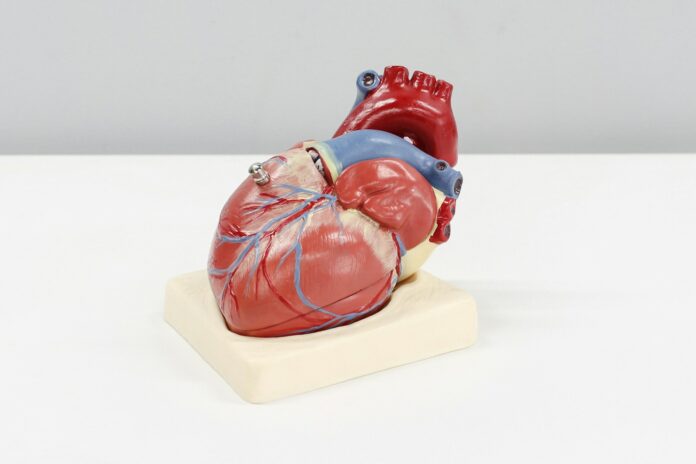Heart rate variability (HRV) is a key metric that offers deep insights into your body’s recovery, stress levels, and overall fitness. Unlike resting heart rate (RHR), which tracks how many times your heart beats per minute, HRV measures the time variation between each heartbeat. This seemingly small detail can significantly influence your training performance, recovery, and health outcomes.
For athletes and fitness enthusiasts, tracking HRV provides a scientific, data-driven approach to optimizing workouts, preventing overtraining, and enhancing performance.
What is Heart Rate Variability (HRV)?
HRV reflects the subtle differences in the time interval between heartbeats. For example, even if your heart beats at 60 beats per minute, the intervals between beats may vary – 0.85 seconds, 1.05 seconds, 0.90 seconds.
- High HRV: Indicates a healthy, adaptable cardiovascular system. It reflects a well-rested, recovered state.
- Low HRV: Suggests fatigue, stress, or inadequate recovery, signaling the need for rest.
“HRV acts like a window into your autonomic nervous system (ANS), which regulates stress, recovery, and overall health.”
Why Does HRV Matter for Fitness?
HRV tracks the balance between two key branches of the ANS:
- Sympathetic Nervous System (SNS): “Fight or Flight” – increases heart rate and prepares the body for activity.
- Parasympathetic Nervous System (PNS): “Rest and Digest” – slows heart rate and promotes recovery.
Higher HRV reflects greater parasympathetic activity (relaxation and recovery), while lower HRV suggests dominant sympathetic activity (stress, fatigue).
The Fitness Benefits of Tracking HRV
1. Optimizes Training Load
HRV helps identify when your body is ready for intense workouts or when you should scale back for recovery.
- High HRV Day: Engage in high-intensity training or strength sessions.
- Low HRV Day: Prioritize light cardio, stretching, or active recovery.
👉 Train smarter by adjusting your intensity based on real-time HRV data.
2. Prevents Overtraining and Injury
A consistent drop in HRV signals overtraining or insufficient recovery, increasing the risk of injury. Tracking HRV allows athletes to catch early signs of burnout before it impacts performance.
- Recovery Focus: Adjust rest days or decrease workout volume if HRV trends downward.
3. Tracks Recovery and Readiness
HRV reflects how well your body recovers overnight. Athletes can monitor HRV to gauge the effectiveness of sleep, hydration, and nutrition strategies.
- Higher HRV in the Morning: Indicates quality sleep and recovery.
- Low Morning HRV: Suggests poor recovery, dehydration, or lingering fatigue.
4. Measures Stress and Mental Health
Psychological stress directly lowers HRV, which can affect both physical performance and mental clarity. By monitoring HRV, athletes can correlate emotional stress with physical readiness and adjust accordingly.
- Mindfulness and Meditation: Practices like yoga or deep breathing boost HRV by activating the parasympathetic nervous system.
5. Monitors Cardiovascular Health
High HRV is linked to better heart health, improved circulation, and longevity. Athletes with consistently high HRV scores often demonstrate superior cardiovascular endurance.
How to Measure HRV
1. Wearable Devices
- Smartwatches (Apple, Garmin, Fitbit): Track HRV overnight and during workouts.
- Chest Straps (Polar H10, WHOOP): Highly accurate for real-time HRV tracking.
- Oura Ring: Measures HRV during sleep for a detailed view of recovery patterns.
2. Apps and Tools
- HRV4Training: Uses phone cameras or wearables to track HRV daily.
- Elite HRV: Offers detailed reports and recovery insights.
- WHOOP: Tracks HRV alongside strain and recovery metrics.
👉 Pair HRV tracking with Myprotein’s recovery supplements to enhance muscle repair and boost readiness. Explore products at Myprotein.
Factors That Influence HRV
- Sleep Quality: Poor sleep reduces HRV, while deep, uninterrupted sleep boosts it.
- Hydration: Dehydration lowers HRV by increasing heart strain.
- Nutrition: Proper nutrient intake supports recovery and elevates HRV.
- Training Intensity: Excessive high-intensity training lowers HRV temporarily.
- Alcohol and Caffeine: Overconsumption can negatively impact HRV.
- Breathing Techniques: Slow, controlled breathing elevates HRV by engaging the parasympathetic system.
Improving HRV for Better Fitness Performance
1. Prioritize Sleep
Aim for 7-9 hours of quality sleep each night to maximize recovery. Use tools like the Oura Ring to monitor sleep stages and HRV trends.
2. Focus on Nutrition
Consume nutrient-dense meals rich in antioxidants, lean proteins, and healthy fats. Post-workout protein shakes aid muscle recovery, boosting HRV.
- 👉 Browse Myprotein’s recovery protein options here.
3. Incorporate Active Recovery
Engage in low-intensity activities like walking, swimming, or yoga to promote recovery without overloading the body.
4. Hydrate Consistently
Drink at least 3 liters of water daily. Hydration enhances circulation and supports heart health, keeping HRV elevated.
5. Practice Breathwork and Meditation
Deep breathing exercises, meditation, and mindfulness elevate HRV by lowering cortisol (stress hormone) and activating the parasympathetic nervous system.
- Box Breathing (4-4-4-4): Inhale for 4 seconds, hold, exhale for 4 seconds.
HRV in Strength Training and Endurance Sports
- Strength Training: HRV dictates when to lift heavy or reduce volume for optimal gains.
- Running/Cycling: High HRV indicates readiness for long-distance or speed training.
- Combat Sports: HRV ensures fighters balance intensity with recovery, enhancing performance in the ring.
News Box: Stay Ahead of the Fitness Curve
For more fitness insights, visit News Box. Stay informed on the latest trends in recovery, strength, and endurance training.
Conclusion: Unlock Performance by Tracking HRV
Heart rate variability is more than just a fitness trend – it’s a valuable tool for improving performance, preventing injury, and enhancing recovery. By regularly monitoring HRV, athletes can train smarter, recover faster, and optimize their health for long-term success.
“Your heart tells a story – and HRV is how you read it.”
👉 Enhance your recovery and performance with Myprotein’s supplements at Myprotein.

